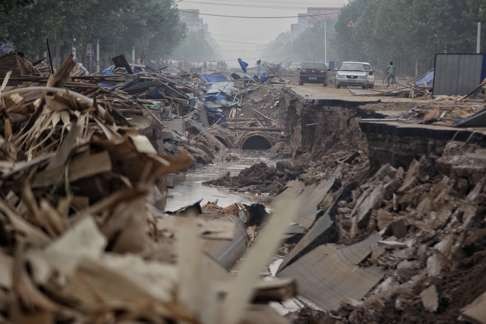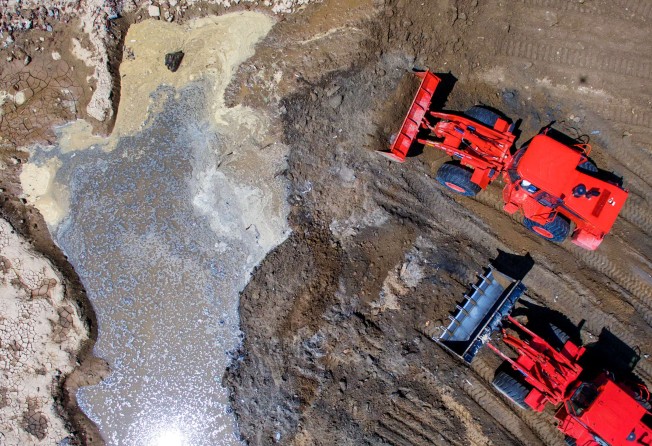
There can be no half-measures in defence against floods
The growing toll of dead in mainland China shows more must be done, in a transparent and effective manner, to save lives and soothe public anger

Flood defences and mitigation for worst-case scenarios do not come cheap, and there are no short cuts. Just one shortcoming has the potential to cause havoc. Disastrous floods on the mainland have exposed a catalogue of them in the countryside and urban areas alike. A senior disaster relief official has blamed flaws in emergency response, planning, drainage and administration. In the case of the high death toll in Hebei (河北) province, on Beijing’s doorstep, he threw in official negligence, illegal building in dried-up waterways and ineffective early warning systems.
That reveals gross misspending on, and mismanagement of, flood mitigation. With floods yet to run their course and this year shaping as one of the worst, officials need to heed public anger at perceived failings and learn the lessons of tragedy and loss.

In the 1990s, China suffered severe chronic flooding. As the country became wealthier, the central government allocated substantial resources to provinces and cities to improve flood defences. The growing toll of dead and missing in Hebei has raised questions about how they were used. A case in point of apparent negligence, poor planning and possibly corruption has led to the suspension of several officials. A flash flood from the Qili River killed at least 17 people in the village of Daxian, near the city of Xingtai. Hebei authorities deny it was caused by the release of water from swollen upstream reservoirs without warning, but local media question why billions spent on mitigation did not make a difference. A thorough investigation is needed to see that any official negligence or other wrongdoing is punished by law and party discipline.
Beijing needs to salvage its investment in flood mitigation by educating local officials to be more responsive and transparent in their decision-making. In the long run, it needs to ensure that investment in dams or flood mitigation is subject to proper technical study and public consultation. Otherwise local officials tend to favour mega projects while ignoring smaller canals.
The authorities would be unwise to regard the public fury as something that will just die down and go away. The anger taps into avoidable human error and neglect. Ordinary people question whether local officials regard people’s lives as precious, or important. It is the suspicion of this kind of mentality that people cannot abide. Urbanisation and industrialisation have degraded China’s natural drainage systems such as rivers and lakes. A national project to strengthen underground drainage and flood mitigation would be an economic driver amid slowing growth.